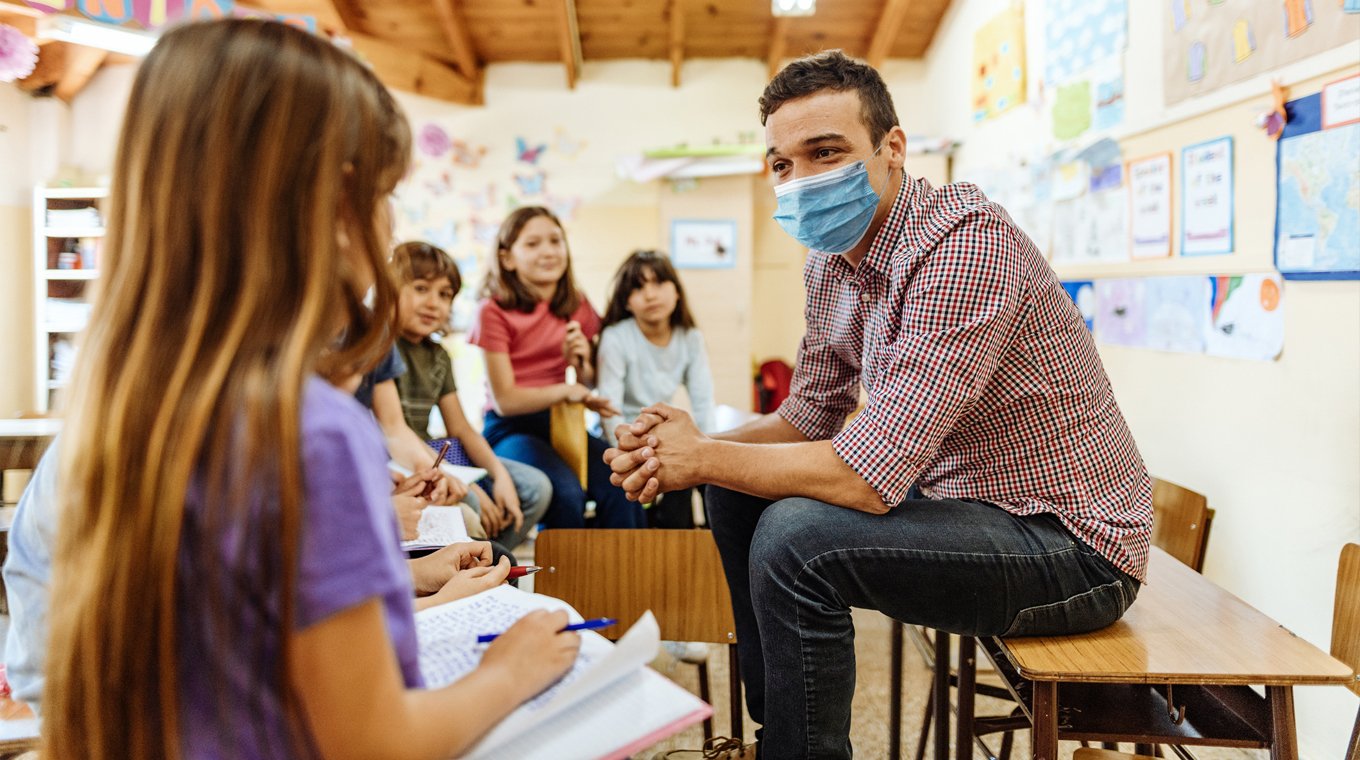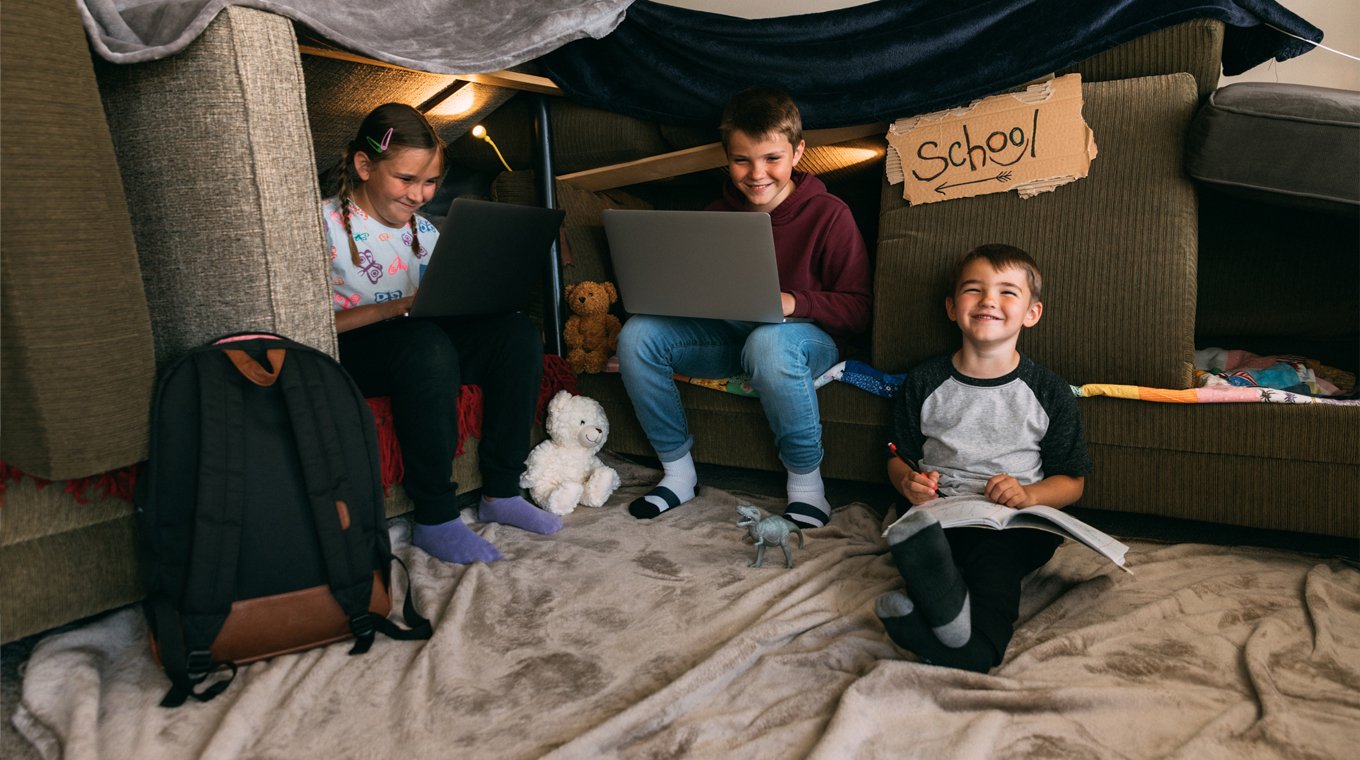
In this article
The new school year is fast approaching, with the latest guidance for schools from the Centers for Disease Control and Prevention remaining unchanged since April. Many parents are waiting on news and updates from their states, counties, and school districts before they choose between homeschooling or returning to schools either via distance learning, reopened classes, or some combination thereof.
While some families are comfortable with (or must do so due to work and other circumstances) sending their kids back with social distancing and hygiene measures, others are not.
For the families considering keeping their kids at home, some are considering homeschooling in the form of a microschool, pandemic pod, or school co-op. Microschools and pandemic pods resemble the one-room classrooms of old and focus more on the individual learner to pursue their own interests. Homeschool co-ops are a collective of families who want to homeschool with each other, with parents teaching or hiring a teacher for all their kids.
Ivan Kerbel is planning to set up a microschool – he calls them "nano schools“ — for his kids. "If you think of the coronavirus as a natural disaster, like a tsunami that has swept over the land, it’s actually left a lot of things intact. The only rule is, you can’t bring a lot of people together in one enclosed space," Kerbel told The New York Times. "The teachers are by and large available, the content and the curriculum weren’t destroyed,” so the Seattle dad thinks kids can still go to school, in smaller groups and in a different environment.
If you're considering a microschool, pandemic pod, or a homeschool co-op for the upcoming school year, here are some things to consider.
What are microschools and homeschool co-ops?

Microschools, pandemic pods, and homeschool co-ops are types of homeschooling. Parents are forming networks to team up and share the load of schooling and allow their kids to be in a closed, safe classroom setting with other families they know. Some who have the resources and budgets may hire teachers to help.
Co-ops
Homeschool co-ops consist of a group of families who work together cooperatively to teach one or multiple classes. Classes and activities can be led by parents or a hired teacher.
“Cooperative learning can be a great way to both share the workload and give everyone the chance to be with other people,” explained homeschooling mom of four Laura Canada Oneill. “Many offer electives like cooking and sewing. Our favorite covered history, language arts, and science.”
Mom of three Kristina Grum says her kids have had success with virtual classes, but she is considering starting a homeschool co-op with her neighbors. “I used to be a teacher, and we have a lot of kids the same age as one of my daughters. I think I’ll be the one to teach a group of them, especially when it comes to math," Grum told Mom.com. “However, our school district does an amazing job with distance learning.”
Microschools
As for microschools, remember learning about those one-room schoolhouses with kids of all ages à la Little House on the Prairie? Well, microschools are kind of like that — except in a modern setting. There are usually fewer than 15 students, and they contain mixed ages.
The principal of NOLA Micro Schools in New Orleans, Matt Candler, described microschool to NPR as not just small in size. He explained that parents of microschoolers "have greater trust in the child's ability to self-direct and the school's ability to adapt."
Pandemic pods
Essentially the same thing as microschools, pandemic pods were so named because of the COVID lockdown and the movement that is seeing parents gathering small groups of "safe" students into a "pod" and having them instructed sometimes by themselves or more likely by a professional teacher. It allows kids some in-person socialization, but also feels safer than sending kids to a school.
As with microschools, teachers are often hired to oversee these pods and this option can be expensive. Because of this, microschools and pandemic pods are more likely being used by more privileged families, leading to conversations about educational equality.
"…[O]ne thing that's raised some hackles is that there are pods that have hired teachers away from the school system, actually, to be tutors," NPR education correspondent Anya Kamenetz said in an interview. "And in other cases, people are just kind of pointing out the irony that here we are in the midst of a national conversation about racial equity and a group of families who have relative privilege are busily constructing solutions for their own kids that leave everyone else behind."
Here's what to expect if you decide to homeschool

Whether you choose to homeschool traditionally or form a microschool or homeschool co-op, know that choosing to homeschool is a major lifestyle change. Whereas the school previously was responsible for the majority of your child’s education, you – and your fellow homeschool parents — will now need to take on the duties of both teachers and administrators.
Honestly assess whether you are willing — in addition to your normal parenting duties — to be responsible for:
- Implementing lessons
- Organizing field trips (virtual or otherwise)
- Coordinating socialization activities with other parents
- Compliance with state and local homeschool requirements
- Financial costs of textbooks, school supplies, manipulatives, kits, manuals, software, apps, courses, technology — even added utilities and clogging up the WiFi
- Possible loss of income due to at least one parent taking over primary teaching duties
Prior to the pandemic, many homeschoolers attended classes — big or small — for a variety of subjects and extracurriculars. There were social outings, field trips, trips to the library, co-op classes, sports teams, drama and theater camps, choirs, art, outdoor education, and so many other classes. Keeping this in mind, homeschooling during the pandemic will look very different, even for families who have had prior experience homeschooling.
How to start homeschooling in a microschool or co-op

First, check your state or territory’s homeschooling requirements and laws for withdrawing from public school (if needed), filing and maintaining a private school affidavit (PSA), affiliating with a charter school, testing, mandatory subjects, and resources.
When forming a microschool, pandemic pod, or co-op, you'll need to check to see if you need additional insurance or other legal protections, such as establishing a corporation and other issues pertaining to the other families you're considering teaming up with.
Next, decide whether you want to partner with other parents, hire private tutors and teachers, or if you want to delegate some classes to online sources like Outschool and Khan Academy. For questions about curriculum or other resources, consider joining local and homeschooling groups.
You can find other families and teachers to team up with in the following places:
- Your child's previous school and class
- Local friends and family
- Local homeschooling, microschooling, or home-based pod groups on Facebook
- Online services that match families with professional teachers and tutors (e.g., Selected for Families, Schoolhouse)
Remember, too, that you can always change your mind. Nothing is ever set in stone, and it’s OK to make mistakes. Don’t forget: Educating our children is lifelong work — and much of it is outside a classroom.







